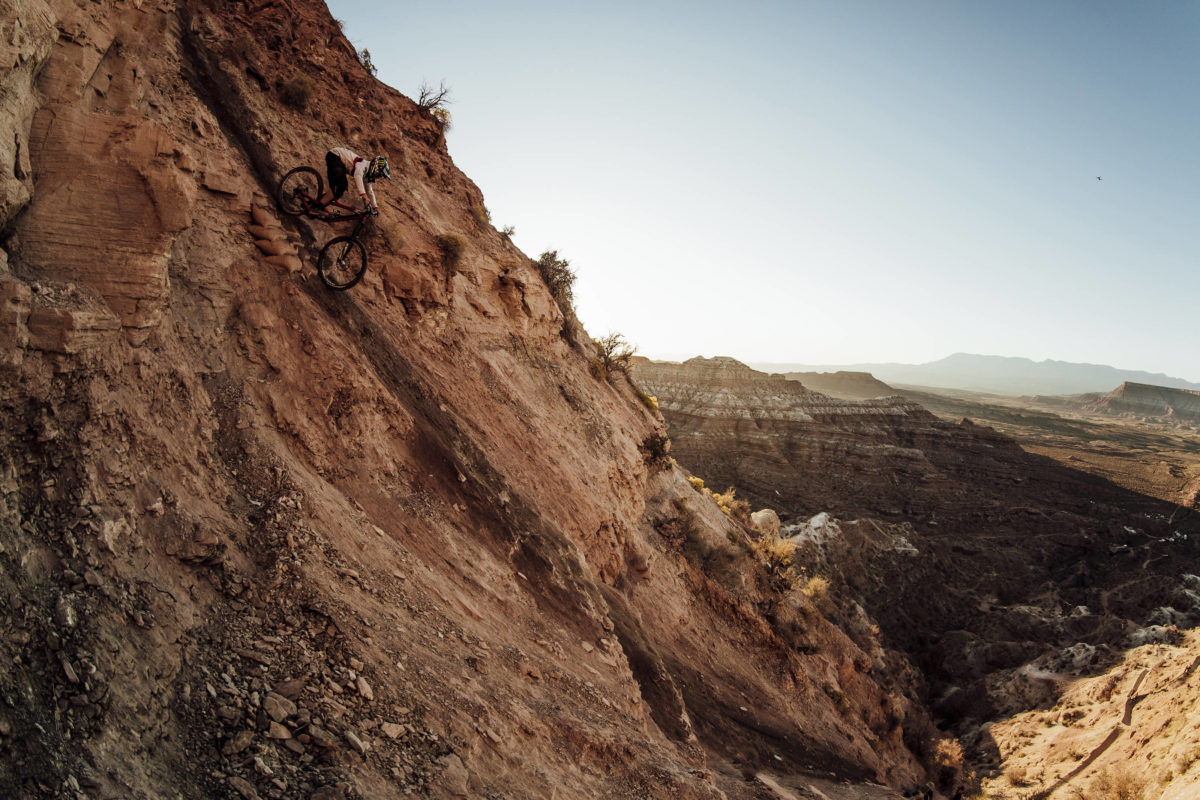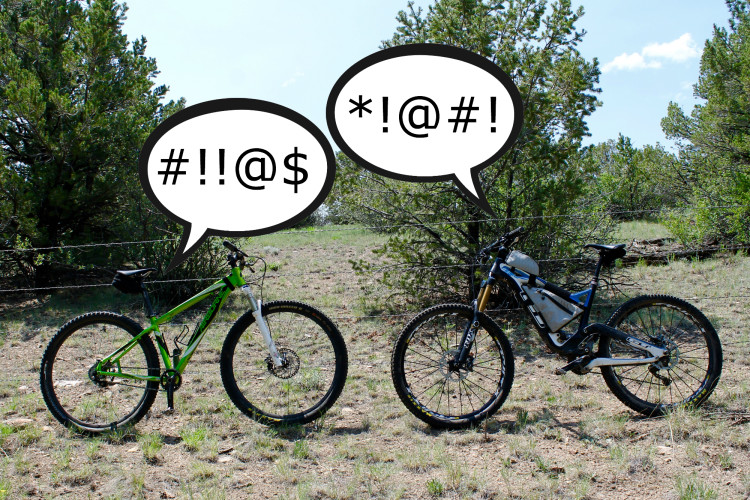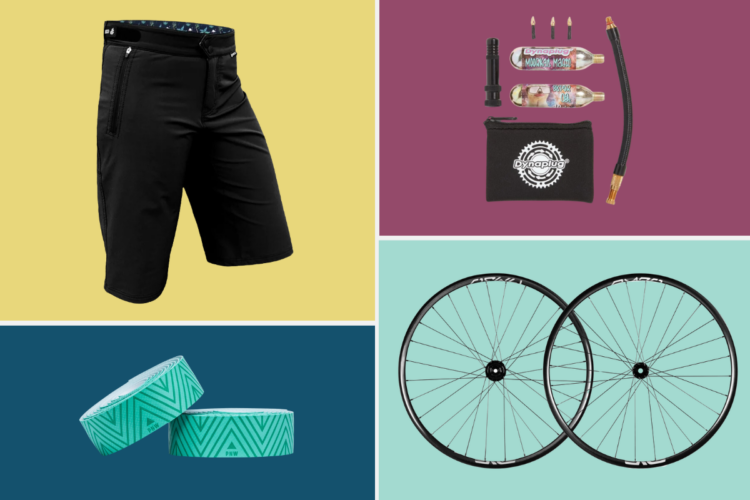
Editor’s Note: “Over a Beer” is a regular column written by Greg Heil. While Greg is the Editor in Chief for Singletracks.com, any opinions expressed in this column are his alone and do not necessarily represent the opinions of Singletracks.com.
Every time I walk through an airport, I take stock of the people around me and notice the vast cross-section of humanity that’s using this same mode of transport. Especially once I land in a foreign country, I look at the people around me, speaking a language I don’t understand, and I wonder: “what motivates this person? What causes that person over there to lead the life he/she lives? What was the catalyst that triggered a series of choices leading him to become… whatever it is that he is, so that at this singular moment in time he’s also on the same plane as me, bound for who knows where?”
Contemplating the motivation behind people’s actions and life choices, and how they interpret the world and derive meaning, is a bit of a pet project for me, leading me to choose a degree in philosophy and read pop psychology in my free time. While one would think that the more you study what motivates people the clearer it would become, it’s only growing murkier for me. And I think that the pop psychologists, in their New York Times bestsellers, who try to provide an easy answer for what motivates humanity (while stretching it into 200 pages or more) don’t know quite as much as they think.
In my 2015 piece titled “How bad do you want it… really?” I concluded by saying, “What goals do you have for the next year? If you don’t know yet, go back up to step one and try writing some ideas down. And then think long and hard: how bad do you want it… really?”
[see_also id=’180198′]
It now seems to me that the idea that determining what you really want in life–what your goals, motivations, and desires are–can be accomplished by means of brainstorming a list in a journal is yet another pop psychology myth gone wrong. While I’ve become a firm believer in journaling as a means of understanding my own psyche and better understanding my personal desires, motivations, frustrations, and so much more, I think that sometimes–ok, most of the time–we don’t actually get to choose what it is that we want in life.
Sure, sometimes we do make conscious choices about what our values are, what we spend our time doing, and what opportunities we allow to pass us by. But most of the time, I think deep down in our bones we find that we just really, really want some things badly… and we don’t always know exactly why we want them.
[see_also id=’226787′]
Trying to Track Down Motivation
I like to look to the riders who form the upper echelon of our sport as a case studio of what drives and motivates human beings, especially in the hardest of times. One great example is Red Bull Rampage, arguably the premier showcase of the most talented mountain bikers on the planet–and the most dangerous mountain bike competition in the world.
In an excellent video published by Bike Magazine titled “Mind over Mettle,” we get a glimpse into what motivates Cam Zink–husband, father, business owner, and professional freeride mountain biker–to compete in Rampage.
“360s are one thing. . .and then when you add it to a downhill bike, it becomes even harder,” Zink explains as video clips of him throwing 360 after 360 in Rampage events going back 10 years play in the background. “And then when you try to do it on a downhill bike off a drop, it’s like it’s a whole ‘nuther world. You’re just kinda floating backward off a cliff, and it feels like an eternity. It’s the sickest feeling ever. Especially off some of the bigger drops I’ve done. (Emphasis mine.)

“I’d love to be doing that on my own out in the middle of the desert anyway, but when there’s that many people there and that much crowd and money on the line, and titles and everything and best tricks, it just amplifies it so much! I know that I can win again and I know that I can get best trick and I want all these things, and it’s even more motivation to bring both my kids on the podium next time,” said Zink. (Emphasis mine.)
As I thought about what Cam said, I identified some of the elements that commonly crop up when people talk about motivation–pushing his limits, competition, rad tricks, innovation, and creativity. While he only mentioned it briefly, I think Cam astutely identified the core of his motivation: “I’d love to be doing that on my own out in the middle of the desert anyway.”
We Don’t Always Get to Choose What We Want
Cam Zink is an extreme example, but I think what we learn from him applies to all of us. I think that we don’t always get to choose what we want in life. Instead, the desire is so deep-seated within us that we feel compelled, motivated, driven, and inspired to do and be a certain type of person. For Cam, that’s throwing 360s off of massive drops–so much so, that he retired from slopestyle mountain biking last year to focus solely on preparing for this one competition in the Utah desert.
Some people talk about having kids with this language, saying things like “I always knew I wanted to be a mother/father and have a family.” They didn’t sit down and think really hard about it, making a list of pros and cons–they just knew.

For me, one deep desire of my soul is to spend as much time exploring in the mountains as possible. To climb thousands of feet up a steep hillside in an attempt to find a ripping descent down the backside. To breathe the cool, crisp mountain air as I look out from the summit, the world spreading out as a collage of rocks, trees, and rivers below me. To embrace that feeling of solitude and loneliness, and the danger and risk that comes from pushing my own limits in such formidable terrain.
I’ve pulled out all the stops in my life to make that deep longing a reality–and many times, without even realizing in that moment exactly why I made some of the choices that I made. Even as I invested the time, energy, and suffering to make those unspoken desires come true, it never seemed like a chore or even a grandiose goal, but rather a common sense motivation: “Of course you would choose to do this. Why would you want to live in Plainsville?”
But as I recently walked down the streets of Belgium below stone buildings that measure their ages in centuries and not decades, listening to a foreign tongue that seemed right on the edge of understanding and yet utterly indecipherable, watching other humans going about their daily activities, the incomprehensibility of each person’s unique drive continued to cement in my mind. I’m pretty sure that many people don’t understand what drives me. I’m certain that almost no one can enter the mind of Cam Zink. And yet, the individual path that each person takes is uniquely beautiful in its own right.



















